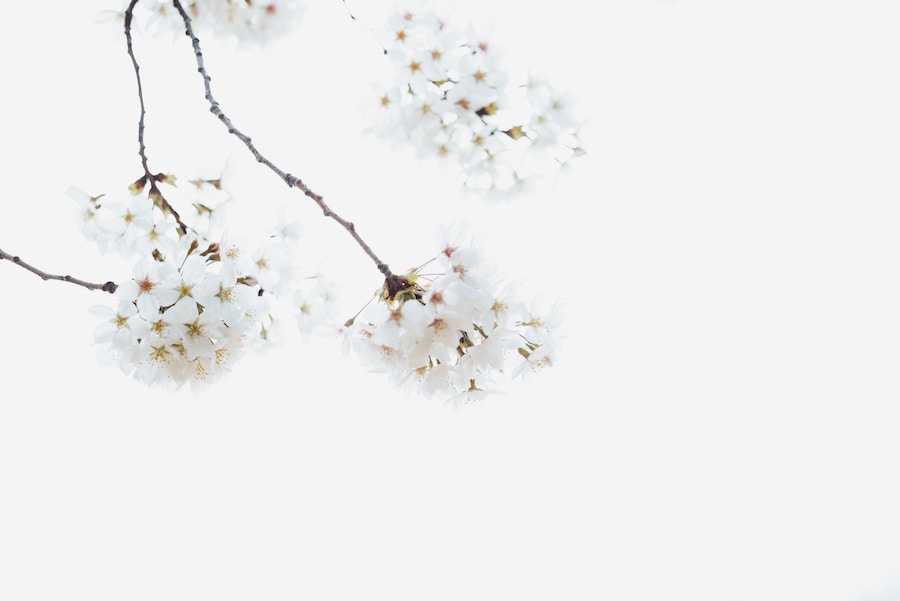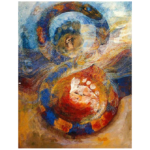According to psychologists, little children wake up in the middle of the night and go to their parent’s bedrooms not to see whether the parents are there, but rather to see whether they themselves are there. It is the repeatedness of this that assures them of their existence. And this is how stories begin to form; and this is how we begin to form and shape in our understanding. Themes, ideas and images, all live within the formed walls of our body.
Through the way that we act towards our children, and the words we say to them regarding their actions and emotions, we essentially mirror to them how they feel and what is going on, so that they understand that within themselves. This mirroring is very important in parenting and early childhood development, because it helps a child learn and develop healthily in their emotional, mental and physical wellbeing. For example, let’s say that your child is experiencing anger and acting out screaming loudly for attention. You can try to remain calm, turn to the child and say, “I can see you are feeling angry now.” This helps the child understand that the emotions they are experiencing are called “anger”. The worst thing we can do is ignore the child – because what this is showing them is that they do not “exist”. And any time when they would experience this later on in life, they would put a stop on it, suppress it, not know what to do with it, fear it, be ashamed of it, and fear that this emotion is not worthy, because they would be ignored.
What I love about Tao or Dao is that it is a way of living in harmony with the universe and with life itself – and within our inner emotional and spiritual wildlands. I find its concepts to be really beautiful to apply towards our modern day parenting, because it teaches us to walk the way of water and beauty with greater sense of purpose, meaning, intention and appreciation.
We can approach and view parenting less as a way to shape a young mind and heart, and more as an invitation for personal growth through which our child will be able to come into their own unique self as well. When we devote to fully embodying the best version of ourselves, we will inevitably create the space within which our little ones will be inspired to do the same and come into their own true essence. Sometimes that might take shape in ways we didn’t expect, but this is for our children to decide and for us to accept.
This Tao approach to parenting requires a lot of awareness, humility and grace. When we walk the devotional pathway, we need to consistent put in the effort to self-reflect and forgive ourselves for whatever we thought we might have done wrong or whatever we thought we should have done more of but didn’t. It means dusting ourselves off when we fall into our little pits of ego, impatience and judgment; and recognizing where our unresolved issues end and our child’s begin. This is done with a kindness and compassion of rhythm, and through the humility of facing ourselves with honesty and self-awareness.
Thankfully, there are always beautiful guides along the way – whether it is people, our loved ones, our friends and family, and there are also the other teachers – the wisdoms from the ancient teachings. Surely, our greatest teachers are not found in books but in the silence of our every day gestures – through the tending, caring and dedication to another person. Chop wood, carry water. There are no quick lessons, no short cuts, it is an ever weaving pathway that unfolds in the moment. Trust is what we embody, settling into our deeper heart wisdom that whatever we will need to know we’ll know in the moment, not before it. So let’s look at some of the Tao teachings that we can apply practically in our every day parenting walk of life.
Words of Life:
You can speak to your child of life, but your words are not life itself. You can show them what you see, but your showing and their seeing are forever different things – as we all see through our own windows, angles and views.
Take the delight of the every day pleasures and wonders of life, and learn to experience joy. When you walk with them through their darkness, you will open the gateways of their understanding. They will learn that no matter the emotions or experiences, they should not be afraid – for there is always a way forward to walk and find ourselves out of the forests, rejoicing in a dance around the firepits.
Go for walks with them in nature. Show them every little thing that catches your eye and engage their own curiosities and playfulness as they play in the wonderments of life. Notice every little thing that catches their eye. Don’t look for lessons to teach nor seek to teach the great big things. Just notice. Just witness. Lessons teach themselves through the witnessing.
You do not have to teach outward niceties; you have to only recognize the inward realities. You do not have to make all things turn out well; you have to only recognize that all is well. Attend to your own actions, and develop the contentment within yourself. Find peace and love in all you do.
Live your life with all your heart, with all your mind, and with all your soul. There is no need to live theirs, they will wonderfully do that themselves. Let them develop their own free spirit – only nourish and encourage them.
Take Care with Labels:
Labels can be really harmful to a child, and they take these on as identities later on. The higher truth is that there is no good or bad, because what’s good for one may be harmful for another in the same mutual exchange. With our limited understanding and conditioned human minds, we will never know it all. We were never meant to know it all anyway. The humility of this deserves to be treasured.
Teach them and show them integrity and self-truth, and having their own values, but stay away from good or bad; because when we call something “good”, they will begin to identity the other as “bad”. Try instead to call difficult things “difficult”, and easy things “easy”, without avoiding one or the other, or seeking one instead of the other, so that the child develops more self-confidence. Stay away from labeling success based on marks or accomplishments, so that they stay away from putting themselves down with words such as “failure”. Children need to learn freedom from fear, and allow themselves growth through perseverence and patience – recognizing that success is trying and keeping on going.
Notice if your child begins to label things such as “this sucks, this is stupid.” Don’t correct them, just notice this and consider how they might have learned that. Reflect, and start anew today showing them a different way.
The Gift of Happiness:
Showing them contentment regardless of what happens externally will give them a peace of mind and increase their self-confidence. Don’t compare them to others, and don’t compare their talents or abilities to those of famous athletes, celebrities or entertainers, because they will lose their own unique power and talents. If you urge them to achieve, they may begin to cheat in hopes to meet your expectations.
Encourage their deepest joys, not their superficial desires. Praise their patience, not their ambitions. Let them hear their own inner voices and follow the courage that the desires of their true heart give them. If we teach them to “achieve”, they will never be content at anything they achieve anyway. But if we teach them contentment and happiness in the little steps, in the dedication and the patience, they will naturally achieve anything that wanted to. Show them the gifts of delayed gratification which unfolds in the way we do and create something rather than the “success” we get at the end.
Do something that truly makes you happy, and through that they will learn what they enjoy for themselves also. Your own happiness is contagious and will inspire them. They learn art and creativity from you.
Children are not vessels to be filled, they are candles to be lit. Love them in all their moments, without needing to change or “improve” a thing. Wise parents know that deep within their children lives a free and creative spirit, that is unique in its own way; and there is nothing to be forced, only watered and encouraged.
Seeing to the Heart:
As we already mentioned, good and bad are only human made concepts and it depends on the perspective. Some behaviours may seem bad to us, but perhaps to the child this is precisely what they needed and was good for them and their soul growth – and this may be beyond our current understanding. Notice both good and bad behaviours without being overly reactive or dismissive, and just respond with openness to learn and hear why they did what they did.
Perhaps they are acting rebellious, but perhaps it is because they need to exercise their independence. Consider if there is something in your behaviour or their school environment that might be restricting their freedom of self-expression, and how you can allow them more possibilities for self-authority. For example, give them more choices – if a toddler, would they want to drink their juice out of the blue or yellow cup – so that they feel a sense of more self-control in their life.
When they are doing something that is irritating you, see their behaviour as a mask or a mirror, self-reflect, and see through your heart, remembering the Tao way that beneath all, is goodness and purity. Above all, do not attach nor ignore a child’s behaviour ever. Stay in your center and work on your own self. Children will often act in ways to show us how they feel on the inside. In other words, they set us up to feel how they feel. If they ignore us, it’s because they feel ignored by us; if they are constantly late i.e. making us feel that they are unreliable when we are in a hurry, it’s because they feel that we are unreliable and not there for them when they need us. You can learn all about how to understand them in my article Understanding Your Child’s Behaviour.
Relax the Grip:
The Tao is continuously giving birth to your children and to you. Life moves through us, breathes through us, God breathes through our every emotion and feeling – so that he experiences himself in a way he could not have otherwise. Like ebbs and flows, life expands and contracts like the breath in our lungs, and so every emotion, experience and feeling are purposeful and meaningful. Our children are not our possessions, so let go of your expectations for them. As we already said, they are not vessels to be filled, only candles to be lit; so all we are meant to do is create the loving and safe environment for them to be who they are and grow into their unique soul’s purpose.
Parental responsibilities are overwhelming and we can constantly feel guilt that we are not doing what we should. We need to protect our little ones, get them to school, keep them off drugs, take care of their health, get them into college and through college, and keep them off all troubles. But we can’t protect them from everything and we can’t pave their ways.
We often tighten the grip when we feel scared or we’ve been through some kind of instability that has rocked our worlds, and we want to feel more stable. Trust is what we need. Consider that when we open our palms, God will always make sure that someone will come across our path and provide what we need in that moment. Teaching and showing our children to have faith and to trust – trust in life and in themselves – is perhaps our greatest gift to them. This way, they will settle into the truth that no matter what happens along the way, they can handle it, we trust them, and they can trust themselves also.
As They Are:
At its essence, love is acceptance. I love you as you are, and I am grateful for your existence in my life, as you are, as we are, as our life is.
Create the space for them to be as they are, as they need to, in their each moment and emotion and experience. Love them as they need to, hug them as they need to be hugged not in the way you always did, but in the way they need to right now.
Let every part of your body relax in this embrace because you are of one, of one heartbeat, even when different. See them clearly with your heart, so empty yourself of the expectations and judgments and criticisms. There is nothing to change, nothing to fix.
Love them as they are, as they need to, in this moment.
This is how they will learn in their own life to settle into self-acceptance without burdening themselves with criticism, shame and judgement.
Nourish them without possession; guide them without controlling; and help them without worrying. Forget the past, forget the future. Let your mind and heart stay right here right now, in the embrace that you are.
The Quiet Place:
We live in a busy fast pace world of constant stimulation, and this can create insensitivity or numbness to our children’s senses. They see so much that they may become blind to what truly matters and unable to see with the heart’s eyes. They hear so much that they might become deaf to the sound of love and kindness. They taste so much that they might become nauseated and forget to keep or speak sweetness to themselves. They desire so much that they might never feel satisfied, and constantly compare themselves to others.
Be mindful of their social media usage, and walk your own talk. Teach them the higher purpose of the senses and how to stay embodied and grounded. Show them the serenity and rhythm of nature; and that taste is about how we speak, and that touch is about touching hearts, and that sight is about discernment and intuition. It will be hard to find a quiet place and create that for them also, so that they can connect to their souls and the wisdom of their heart’s voice; so start with showing them how to do this through your own way of life. This will help them learn how to approach their also. What can you do today? Perhaps a walk, playing a simple game, reading a story, feeding an animal.
The Natural Virtues:
All children are born with a natural connection to God and the other realms. Encourage their imagination and creativity because these will be the channels of faith and love. Read them fairy tales to stimulate their imagination, rather than watching movies all the time. Imagination is what creates amazing creators, change-makers and innovators, and it is what sustains us. Encourage their virtues such as patience, devotion, trust and humility. Teach them discernment and free will – free mind and free spirit. Show them that failure is nothing to fear, only opportunity for a deepening.
Encourage them to believe and have faith in something, so that they can relax their own grips and have higher morals and values that will guide them in life like Northern Stars. Show them that prayer is not only when we put our hands together, but that prayer is a natural state of our heart, mind and body. We pray when we cook, when we garden, when we dance, when we hold with tenderness, when we witness tears, when we shower and garden, when we help and when we breathe. It is a way of connection and relating; it is a bridge towards faith and love. When we approach all life with more intention, and infuse it with love and kindness, life itself becomes a love song like a necklace of a beautiful prayer.
The Language of the Body & the Brilliancy of Feelings:
Show them to treasure, take care of and be grateful for their bodies and their life in every step. So many things came together, all of our cells in a mutual decision to say yes to us, yes to life, so that we are born. So that we have hands to hold another hand, tongues to taste chocolate and say I love you, eyes to see the beauty of a little rose, ears to hear the laughter of our family – through all these, we are blessed to experience life so deeply and so meaningfully.
Guide them how to trust their bodies, understand the language of their bodies, and listen to and respect its needs. All cells within us have their own unique purposes also – some are defenders of our immune system protecting us from harm and illness; others are organizers organizing food and energy resources, hard workers who are in charge of flushing poo down the toilets. Other cells are lovers, queens of nurturing in our times of hardships; and we also have our kings, in charge of discernment during times of confusion. All is purposeful, so accept your body, so that they can accept their also.
Love is the only truth there is, and it is our natural state of being. Fear, shame, guilt, are our body’s way of telling us that something isn’t right and needs to be adjusted. All emotions are purposeful because they carry messages, so teach them how to understand the messages and listen to themselves. This will inspire them to trust themselves rather than suppress themselves; and tune into their natural compass of their inner wisdom and intuition. Nurture their changing emotions and bring their awareness to the brilliancy of their feelings.
The Beginner’s Mind:
Approach all life with an openness and stay in the humility that no matter how much you think you may know your children, you don’t. Stay curious about them and learning about their inner worlds; listen and re-discover them.
Become the student. Children are fascinated by the ordinary things, so find the extraordinary in the ordinary also. Take in the pleasure of witnessing the timeless beauty and joy by sunlight dancing with dusk, and a squirrel running around gathering nuts. The more you practice this, the more your children will learn to do that also – and focus on the present mind, appreciating these moments, rather than their minds running miles ahead and stressing out. Learn from your children also – as they are your teachers and precious guides. They may constantly change the focus of their attention, but this is not restlessness – it is curiosity. Watch them. Let them set the pace. And see what you can learn from them. Perhaps it’s something you might have forgotten about your own young self.
Make the Ordinary Extraordinary:
Show them the joy of eating strawberries, apples and tomatoes. Show them how to cry and that it is okay to feel sad when we’ve lost something. Show them the infinite comfort of a hand’s touch. Show them how to take pleasure in making their own plays, and build magic things out of simple things around the house. When we make the ordinary come alive, the extraordinary will take care of itself.
In a culture that is never content with anything, and always striving for more and bigger, it is hard to be appreciative and grateful of what we already have. It takes courage and discipline to go slowly, lightly, and to live simply, and to see clearly. But this is the path of self-fulfillment.
The Relationship:
Everything in life is a relationship. When we spend enough time with something, even confined to a room between four walls, we’ll build a relationship to that room. We are in constant and continuous relationship with life, with the streets on which our feet walk, with others and with ourselves, with nature, and with our furniture also. The way we treat one, will inevitably have an impact on how we treat another. Show them how to appreciate all with caring and attention.
Children naturally love life and the changes of the rivers. They take delight in all, and are in awe with all, not really separating things by texture or form. This deep love they have is not something to be taught, it is something only to be lived. The more you yourself live this, the more comfortable they’ll be to continue living this. Welcome them and invite them in this way of love, but don’t impose it on them. Nurture their dreams, guard their self-respect and protect their privacy and self-esteem.
Don’t worry about how they treat you, focus on how you treat yourself. Find your own meaning in life. When they see you celebrating life and who you are, they will return to their natural joy and flow in themselves, and in you. Do not let the demands of an overactive world rob your children of their peace. Be like water, find the balance, do not lose sight of what matters most. Each day is a dance, each step is a dance. We all do the best we can each day with our efforts. Love is not a stone, not a statue, it doesn’t just sit there. Love is like bread, has to be made and remade all the time, made anew.
The Hidden Mysteries of Their Life:
While we give our children names, and we have many beautiful words with which to describe much of life, the inner wildlands that our children live in and where life itself too thrives are often nameless and mysterious. Love is undecipherable. Perhaps it is easier to write about the tangible things, to give ourselves some comfort in the instability of life and the fear of the unknown, as the outcomes may be hooked better at the end of our pens. But that’s not how life works, as there will always be something left hidden and mysterious. And the mysteries of life are hidden too. They may disappear when we stare too long at them; they may hide when we may seek it externally.
The path is inward and this is the direction towards which to shift our eyes when we want to understand something deeper. The kingdom of heaven is also inside, within our heart. This is where God too is; and where each one of us can find ourselves and our own truth. The heart is the portal and the gateway, and it is our church where we can forever settle into it. Love returns us to love, always.
God is not found in statues or temples or far up in the skies; it is found in all life around and within us. Split a piece of wood, God is there, love is there; lift a stone, God is there, love is there; sometimes God is iceberg, sometimes bird’s song, every day is a God and its holiness will unfold itself through the years. God is found in the eyes of the ones we love, and in our humanness and kindness and humility, when we open our palms to give, to love, to receive and to connect. If something makes us kinder, more open, more generous and more soft, it is sacred and it is of love. It’s all in the heart. Self-knowledge is our greatest gift to ourselves and what will be our guidance.
It is good to know to leave some pages unwritten in our books, so that life can surprise us and show us its miracles. While we build our roads concrete and straight, the real paths of life are often indirect and full of many twists and turns. Timing itself lives in its own invisible lands – somewhere weaving in the cosmic fabrics. There are clocks beyond our human made clocks. Unstrikeable, unclockable by us. There, time has its own timing. We must learn to trust the timing of our life, and its unique unfolding.
Though all these mysteries of life cannot be often seen nor proven, it is precisely this that allows us to learn our greatest lesson, which is trust. Have trust in yourself. Have trust in your child. You can trust them. You can trust yourself also. Look at your children. You will never ever fully know all there is to know about them, just as you’ll never know all there is about yourself also. There will always be unknown wild parts undiscovered within us, and we’ll never know all the mysteries of our being. But we will never meant to know it all anyway. Can we still love that which we cannot understand and fully know? Yes … because love is undecipherable, ever beating and giving purpose to the drumming of our human heart.

For more of my writings, browse through my Art of Love.
Recommended articles on children and parenting:
Understanding Your Child’s Behaviour
The Importance of Fairytales for a Child’s Wellbeing
A Child’s Sense of Wonder & the Importance of Reading
The Magical Child ~ Showing Our Little Ones How to Make the Ordinary Come Alive
Spirit Babies and Conscious Conception
I love what I do, I love to create and to contribute, and if you’d like to support me and my work of love, you can do so by sharing my articles and poems, buy my books or donate some magic coins in my hat on Paypal. If you would like to work with me, visit my Sacred Offerings.
Your support means so much to me! Thank you wholeheartedly!





